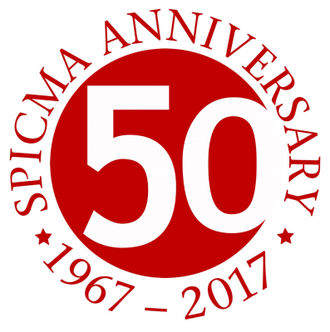SPICMA celebrates 50th anniversary

In July 1967, a young priest, Bernard Phelan, was ordained at a north London church, St Peter in Chains, as a Mill Hill Missionary.
This month Fr Phelan is back in London to celebrate his jubilee - and the 50th anniversary of a charity originally founded to support his parish in rural Uganda but now aiding projects from Africa to central America, Asia and the Pacific islands.
Family and friends in the parish, including his brothers, Michael and Paddy, started a support group called Friends of Tororo Mission, originally to buy ploughs for the local community, with Paddy Phelan as honorary director.
Six of the original group will be there when Fr Phelan concelebrates Mass at the Church of the Immaculate Conception in Farm Street, London, on July 22. Among them will be Paddy, who at 75 remains honorary director.
Like the original group, the charity remains entirely voluntary with no paid staff but estimates that it has provided as much as £70 million in aid over the years.
The expansion came when Idi Amin’s coup in 1971 led to the breakdown of Uganda’s infrastructure, particularly the health services. The Friends soon were sending tons of medical supplies first by air then, as amounts increased, in container ships.
Afterwards the group began looking for other areas where it could help “people who were in danger of falling through the cracks,” as Paddy puts it. Very soon it was funding projects in places as far from Uganda as Poland, where the Church was then persecuted by the communist authorities.
About this time came a change of name to Special Projects in Catholic Missionary Areas, (SPICMA0 and the charity has played a significant part in many aid efforts.
Among the earliest was Richard Branson’s 1992 appeal for assistance for the refugee camps in Jordan. The group had two tonnes of blankets and disinfectant at the airport within 36 hours of receiving the call.
After a tsunami devastated coastal areas of south-east Asia on Boxing Day 2004, SPICMA was called on to provide interim medical aid in Sri Lanka, one of the worst-hit nations, until the larger NGOs and government agencies got their aid packages up and running.
The group also supported a Jesuit project to rebuild homes on the island destroyed by the tsunami and provided similar assistance in the southern Indian states of Kerala and Tamil Nadu, which were also badly hit..
Not long afterwards came a disastrous earthquake in Kashmir, the territory part in India and part in Pakistan, which killed 73,000, injured 100,000 and left 3.5 million homeless.
Mill Hill Missionaries (MHM) notified SPICMA of the scale of the disaster the day after which enabled the group to appeal to supporters immediately.
“Within a couple of days we had sent the first tranche of money to MHM in Pakistan and India,” Paddy says.
Funds were later channelled through Caritas Pakistan and SPICMA raised a total of £116,000 for the earthquake fund.
The following year, 2006, SPICMA’s close contacts with MHM meant it was the first NGO to receive news of disastrous floods in Sindh, Pakistan, after days of heavy rain.
£10,000 was sent two days after the news was received from MHM by email and SPICMA set up a separate appeal as no other agency appeared to be yet aware of the tragedy. This raised more than £51,000.
Another emergency appeal in 2009 helped MHM assist up to half a million refugees fleeing to the Peshawar and Nowshera areas of Pakistan from fighting in the Swat Valley.
In 2014 aid was provided in the aftermath of Typhoon Yolanda in the Philippines. SPICMA supplied roofing materials and helped to replace fishing boats lost in the storm. Fishing was for many families the only source of livelihood.
Nine large boats were built, each shared by up to 10 families in a co-operative arrangement along with 10 smaller vessels, each shared between two families.
But it is not just the major emergencies that SPICMA supporters and volunteers are involved with. It is the more personal, such as the appeal from a Franciscan orphanage in South India in such dire straits that the brother running it had had to go to money-lenders to pay for the children’s food. SPICMA kept the orphanage running.
And there was the hand-written appeal from a priest in the Solomon Islands seeking help to build a church to replace the bamboo and thatch hut where Mass had been celebrated. “No one has any idea how he found out about us – or even our address,” Said Cathy Forman, SPICMA’s administrator.
Donations can involve tiny sums – such as the purchase of a winter coat for a schoolgirl or medical treatment for a boy struck in the eye by a cricket ball. But the Mill Hill priest to whom those donations went points out that it is the smallest things in life that often make the biggest difference.
And at present, SPICMA has returned to its roots. Its most recent efforts have been to combat an ongoing drought in northern Uganda, the area where Fr Phelan was first posted. This year’s rains have not been enough to sustain crops and SPICMA has sent an emergency grant of £20,000 to two parishes.
Read more about SPICMA here: www.spicma.org/















